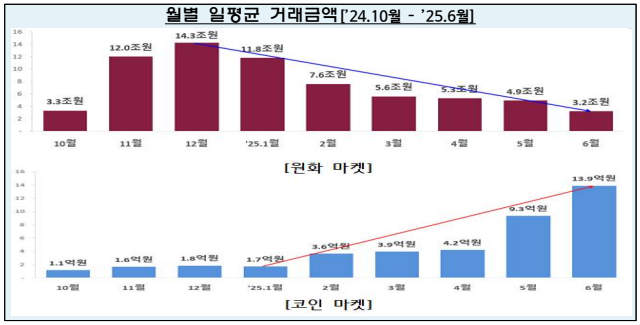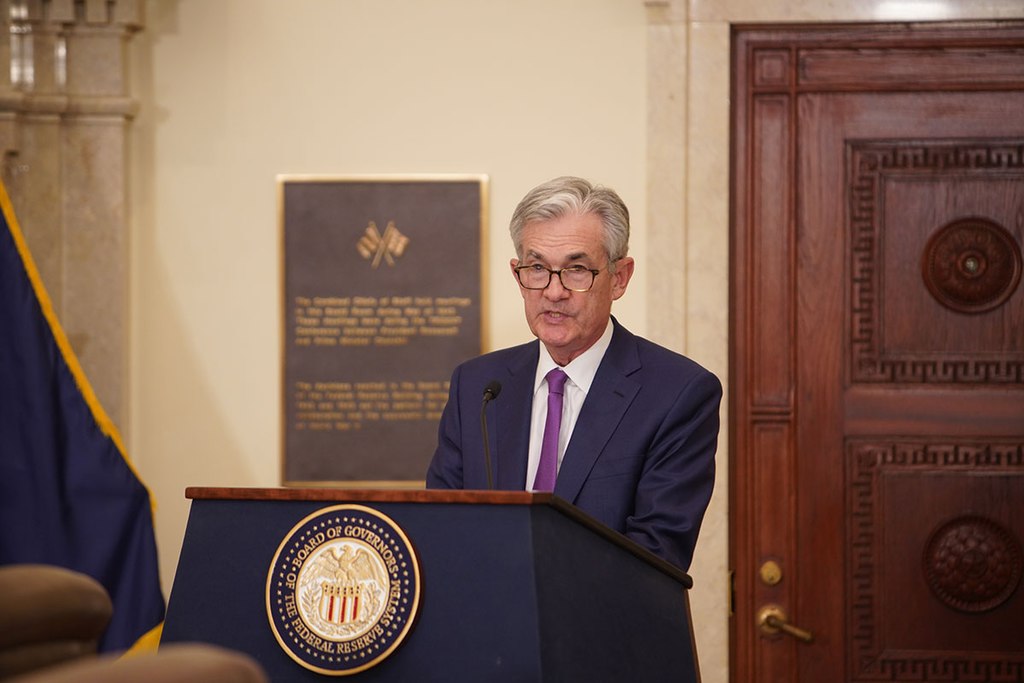South Korea’s once-frenzied cryptocurrency market is losing steam, with fresh data showing a sharp contraction in trading activity and liquidity in the first half of 2025.
The combined market capitalization of assets held by Korean crypto exchanges fell 14% from the end of last year to 95.1 trillion won ($68.7 billion), according to a joint survey released Tuesday by the Korea Financial Intelligence Unit and the Financial Supervisory Service. Won-denominated deposits, a key gauge of market liquidity, plunged 42% to 6.2 trillion won.
The pullback marks a stark reversal from late 2024, when rising token prices and a wave of institutional Bitcoin buying fueled market expansion. While Bitcoin has climbed 16% this year to trade above $107,000, global crypto market capitalization slipped 7% to 4,473 trillion won amid trade frictions and geopolitical tensions. Korea, one of the world’s most active retail trading hubs, appears to be following that global cooling trend.
Fewer Won, More Coin-to-Coin Trading
Trading volumes also shrank. Total transaction value at Korean exchanges fell 14% from the previous half-year to 1,160 trillion won. Average daily trading volumes slipped 12% to 6.4 trillion won.
Yet beneath the slowdown, structural shifts are underway. Won-denominated markets, long dominant in Korea, are contracting, while so-called “coin-to-coin” markets—where investors swap tokens directly without using fiat—are surging. Although still just 0.5% of the domestic market, coin-to-coin capitalization jumped nearly 300% from late 2024, and daily trading activity soared almost threefold.

Volatility Three Times Higher Than Stocks
The retreat has done little to tame the notorious swings of Korea’s crypto scene. The average maximum drawdown—a measure of peak-to-trough losses—hit 72% in the first half, up from 68% at the end of last year. That’s more than three times the volatility seen in the benchmark Kospi equity index, underscoring the persistent risk retail traders face.
Coins listed exclusively on domestic platforms proved especially unstable, with drawdowns of 77%, far exceeding those of global majors like Bitcoin and Ether.
Capital Flight Abroad
Tighter regulation is also reshaping flows. Outbound transfers of crypto from domestic platforms climbed 5% to 101.6 trillion won in the first half, with nearly a fifth falling under Korea’s “travel rule,” which tracks large cross-border transfers. Shipments to pre-registered foreign exchanges and whitelisted wallets rose 4%, suggesting arbitrage and overseas storage remain popular.
Smaller investors are also active: though transfers under 1 million won made up just 2% of total outflows by value, they accounted for 68% of all users, pointing to continued reliance on personal wallets.
Cooling, Not Collapse
The survey covered 25 domestic crypto service providers, including 17 exchanges, and was based on self-reported data through June 30. While the sharp drop in deposits and capitalization reflects a market catching its breath, regulators and investors alike will be watching whether Korea’s crypto industry stabilizes—or whether this is the beginning of a deeper structural downturn.

























Comment 0